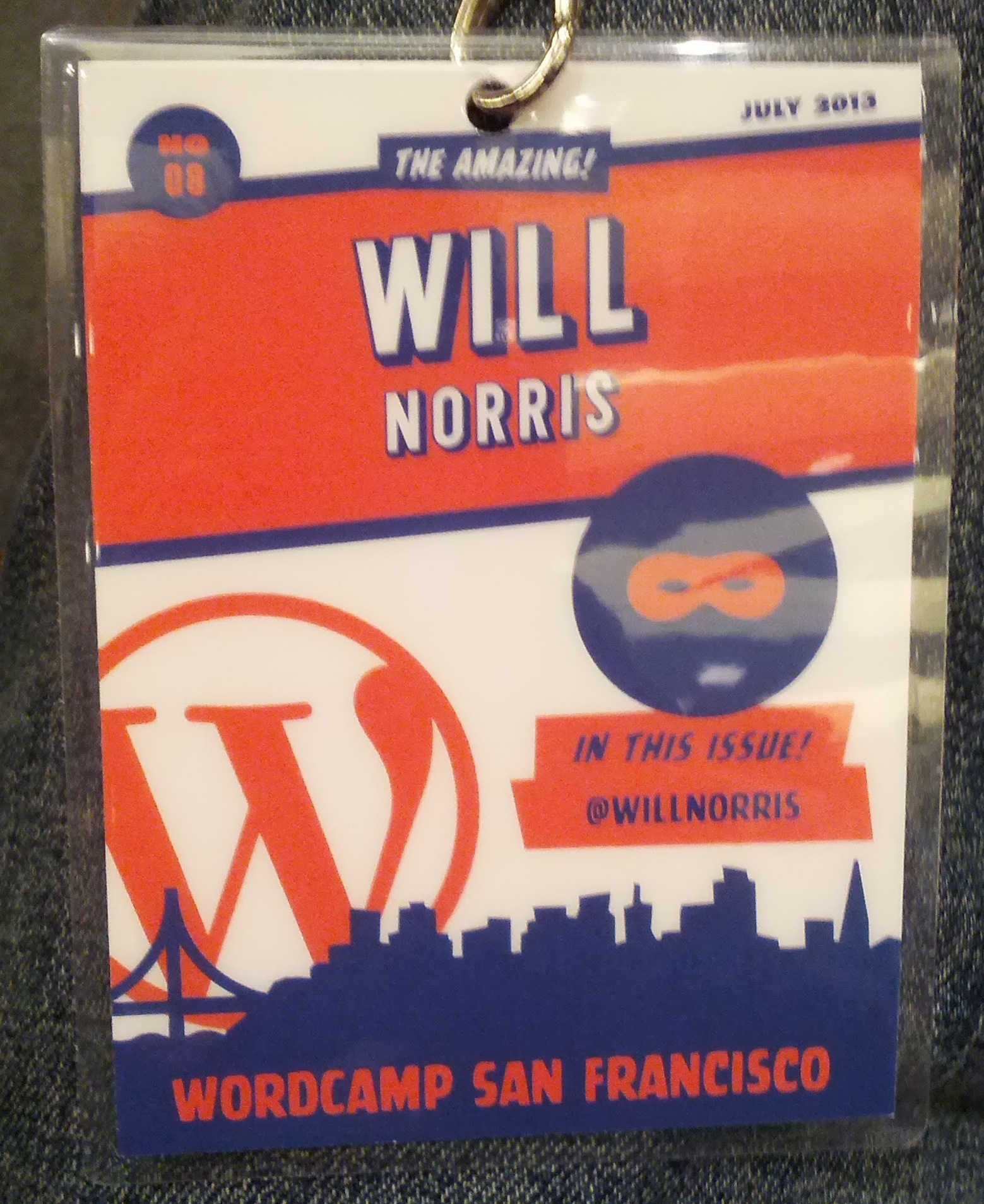WordCamp badge fail
Last December, Matt Mullenweg linked to a post titled A lawyer’s home base on the web is their blog, advocating the use of a personal website as your primary identity online.
Blogs have become a home base: a hub of personal information, which is then pushed to services like Facebook and Twitter.
Of course I loved seeing this, as it is completely inline with the first principles of IndieWebCamp and countless other efforts that encourage individuals to take more control of their online identity.

So imagine my disappointment this morning when I checked in at WordCamp San Francisco, only to discover that my badge has my Twitter handle, but not my website URL! And it’s not like they don’t have attendees’ URLs… they were collected at registration and are even listed on the 2013 Attendee page. I’m not terribly surprised either, as their registration emails hinted at it, and I tried to ask about it, but with no response.
This same thing actually happened at WordCamp Portland a few years ago, and I similarly gave them a hard time about it. This is a WordPress conference, for crying out loud. Why would you not give me the opportunity to identify myself using my blog URL? Since when did Twitter become the default identifier for WordPress users?
I can at least give WordCamp Portland a break, since that was the first year for that event, and I don’t believe the organizers had as much of a history with WordPress. But this is WordCamp San Francisco… the main WordCamp of the year, organized by Automattic.
It’s really hard to take Matt and others seriously when they talk about the importance of owning your data when things like this happen. But not to worry, I fixed my badge.
Update: And it’s worth noting that aside from the lack of URL, I totally love this year’s badges! Well made, well designed, double-sided, overall really well done! And WordCamp itself has been great this year with really good sessions.